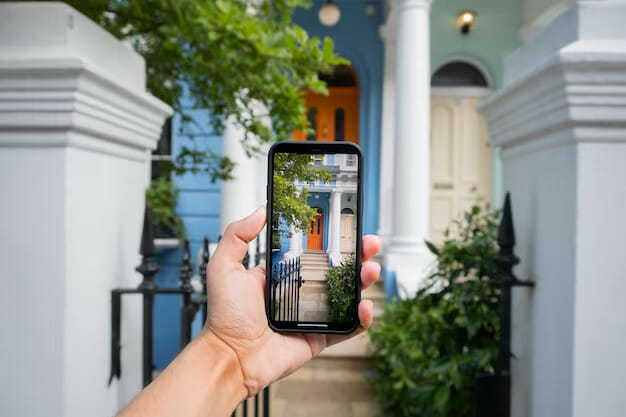Technology is the defining feature of 21st Century life. It’s present as we read the morning newspaper, execute daily work tasks, manage our personal finances, communicate with loved ones, shop for home supplies, and the list goes on. At every step, there are digital tools and innovations to make each of life’s processes simpler and more accessible.
It’s no surprise, then, that technology is reshaping real estate transactions too. Famously complex, notoriously inaccessible and disparagingly opaque, real estate transactions have been a thorn in the consumer’s side for decades – maybe centuries. Now, bold innovators and tech mavericks are aiming to change that.
Pulling quotes from industry leaders, here are a few ways technology is streamlining real estate buying.
“The Landscape of the Imagination” in VR and AR Technology
“Virtual reality is the first step in a grand adventure into the landscape of the imagination,” Frank Biocca wrote in the Journal of Communications, a peer-reviewed research journal uncovering the future of human interaction.
But in real estate, AR and VR technologies aren’t purely imaginative. Instead, they allow consumers to gain a very real foothold on remote properties by allowing them to partake in immersive experiences. Modern buyers can tour a home from their computer, access 360-degree photography on a mobile app, and even test furniture and paint choices with AR-enabled tools. All of these functionalities help take the guesswork out of buying a home, ensuring greater consumer satisfaction.
“Choice, Accountability and Transparency” in the Digital Marketplace
The world’s first end-to-end real estate digital marketplace is Nobul, a company that seems to grow exponentially with each passing day. (Deloitte recently awarded it the fastest-growing company in its Fast 50 list).
According to CEO Regan McGee, that success boils down to three main value props. He shared that “Nobul brings choice, accountability and transparency to an industry that has – for decades – been widely regarded by homebuyers as opaque and challenging.”
With Nobul, consumers are in charge. Buyers can search for real estate agents, vet various options, compare services, and allow the company’s AI-powered algorithm to highlight relevant agents. Whereas other platforms serve as lead generation tools for agents, Nobul actively works in the consumer’s corner, ensuring transparent information you can’t find elsewhere, like transaction histories and real verified reviews.
“A Consistent, Digital First Borrowing Experience” with Digital Lending
Speaking to Forbes, Joe Tyrell, the president of ICE Mortgage Technology, applauded the emergence of a “consistent, digital first borrowing experience” during the recent COVID pandemic. He isn’t alone.
More lenders are moving towards digital solutions, allowing buyers to submit online applications, compare rates, manage their documents, digitally sign agreements and more. And consumers are responding favorably. An overwhelming majority of buyers report that digital borrowing is easier, more accessible and more convenient than in-person mortgage acquisition. And many buyers report a reduced time to close when they borrow digitally.
Open digital marketplaces, AR/VR technology and digital lending are just the beginning. As the industry responds to consumer demand for accessibility and convenience, buyers can expect the real estate process to continue improving in the future.




